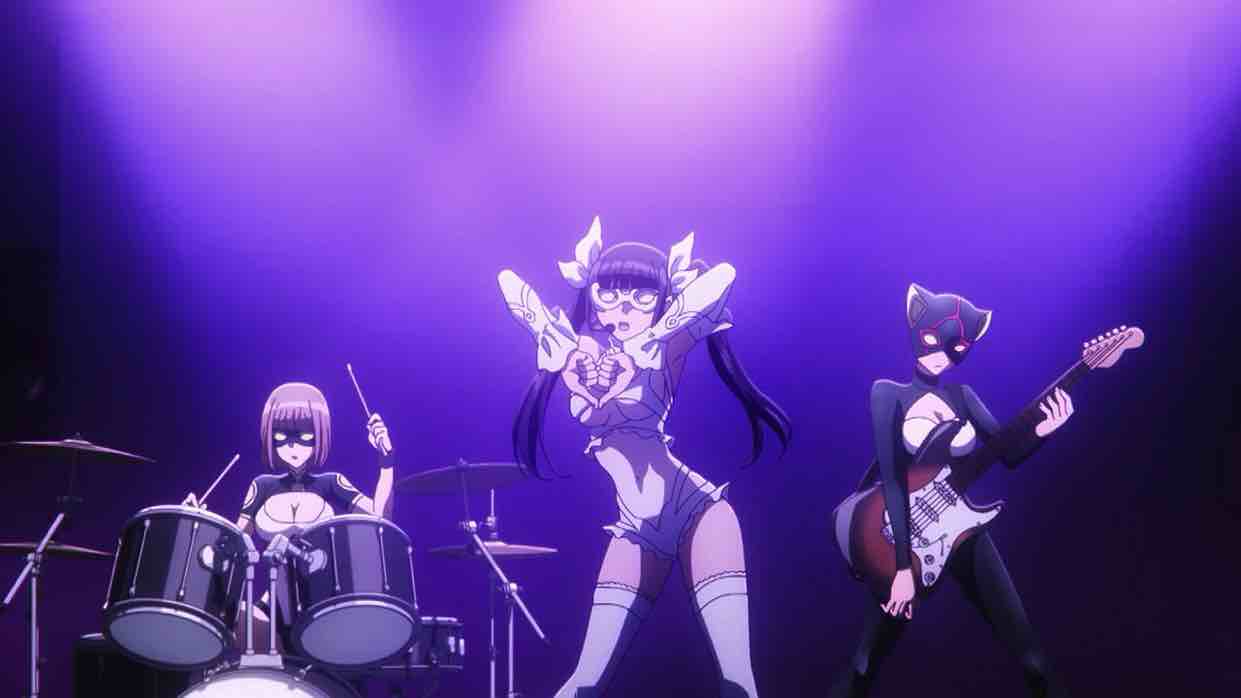Paripi Koumei: An Analysis of an Anime Series
As a subject-matter expert on anime, I have recently watched the finale of Paripi Koumei and was left with a perplexing realization. Surprisingly, I discovered that I had unknowingly deviated from the intended target audience for this series. Throughout the show, one recurring theme emerged – the belief that music possessed the ability to change the world. However, the only exceptionality I found within the entire production was the outstanding opening song. This lack of distinctiveness led me to ponder the decisions made by the creators of Paripi Koumei. Rather than focusing on unique elements that could set the anime apart, the show primarily revolved around generic pop songs and the beloved concept of “cute girls doing cute things.” This article will explore the missed opportunities, poorly-written characters, and the overall impact of Paripi Koumei on the anime industry.
Missed Opportunities and Generic Themes
At first glance, Paripi Koumei appeared to possess a spark of originality in its initial episodes. However, as the series progressed, its potential seemed to flounder, ultimately failing to captivate my specific segment of the audience. For instance, Kabe, a character who hinted at being crucial to the story, ultimately ended up with an insignificant role. His introduction sparked expectations that were never met as his character development fell short. Another troubled character, Karasawa, stood out due to his poorly-written persona. However, despite his flaws, his influence on the success of Azalea, taking three initially unpopular girls and turning them into sensations, cannot be overlooked. Yet, any potential for nuanced critique regarding the idol industry remained unexplored. The storyline opted for a cliched happy ending, overlooking the chance to provide a biting critique of the idol mafia.
The Missed Potential of Koumei
Perhaps the most significant missed opportunity of Paripi Koumei lay in the character of Koumei himself. Rather than presenting him as a protagonist with depth and a compelling backstory, the series treated him as a mere MacGuffin – a necessary catalyst for the plot to unfold. While Koumei’s presence was undeniably instrumental, his individuality and the reasons behind his circumstances were rendered irrelevant. Like oxygen, indispensable but easily overlooked, Koumei became a character that failed to leave a lasting impact in viewers’ minds.
An Original PA Works Series?
Despite being an adaptation of a manga, Paripi Koumei played out more like an original PA Works series. This is particularly evident in its narrative momentum, which regrettably waned in the second half of the show. Furthermore, the series shied away from delivering a thorough critique of the anime industry, a characteristic commonly associated with PA Works’ originality and daring storytelling. An intriguing thought emerges: Did PA Works choose this manga adaptation because it naturally aligned with their narrative aesthetic, or did they mold it to fit their vision? While the answer holds little significance, it remains an interesting question to ponder.
Conclusion
In retrospect, Paripi Koumei failed to resonate with me on a deeper level. The series seemed to overemphasize the importance of its events, which regrettably fell flat in capturing my interest. However, it is essential to acknowledge the show’s apparent success, considering the enduring popularity of generic pop music and anime centered around cute girls. It would not be surprising if a second season were announced, given the show’s achievements. Nevertheless, the lack of source material may pose a challenge if a swift continuation is sought. Personally, I anticipate swiftly moving on from Paripi Koumei, with only the impressive opening song remaining memorable.
Frequently Asked Questions (FAQs)
1. Will there be a second season of Paripi Koumei?
As of now, there has been no official confirmation regarding a second season of Paripi Koumei. However, considering its popularity, particularly among fans of generic pop music and cute girl-centered anime, the possibility of a second season cannot be dismissed. An important announcement is scheduled for later this month, which may shed light on the future of the series.
2. Does Paripi Koumei offer a unique critique of the idol industry?
While the concept of critiquing the idol industry is undoubtedly intriguing, Paripi Koumei falls short of delivering a truly biting critique. Although Karasawa’s character presents an opportunity for deeper exploration, the show favors a cliched happy ending instead. Therefore, those seeking a thought-provoking analysis of the idol mafia may find Paripi Koumei wanting.
3. How does Paripi Koumei compare to other PA Works series?
Paripi Koumei, despite being an adaptation of a manga, shares similarities with PA Works’ original series. However, where PA Works’ original works often embrace bold industry criticism through their narratives, Paripi Koumei falls short in this aspect. Though the question of whether Paripi Koumei was chosen for its compatibility with PA Works’ aesthetic remains unanswered, its divergence from the studio’s usual daring storytelling is apparent.
4. Did Paripi Koumei utilize its source material effectively?
While Paripi Koumei serves as the first manga adaptation undertaken by PA Works, it exhibits qualities more commonly associated with original series. It is difficult to ascertain whether the manga naturally aligned with PA Works’ vision or if modifications were made to suit their narrative aesthetic. Nonetheless, the series displayed a loss of narrative momentum in its second half, which may suggest potential challenges in effectively translating the source material.
5. What makes the opening song of Paripi Koumei exceptional?
Amongst the entirety of Paripi Koumei, the opening song stands out as the sole exceptional piece of music. Its captivating melody, heartfelt lyrics, and flawless execution contribute to its distinction. The opening song serves as a testament to the potential the series initially possessed and remains a memorable aspect even amidst the show’s shortcomings.

